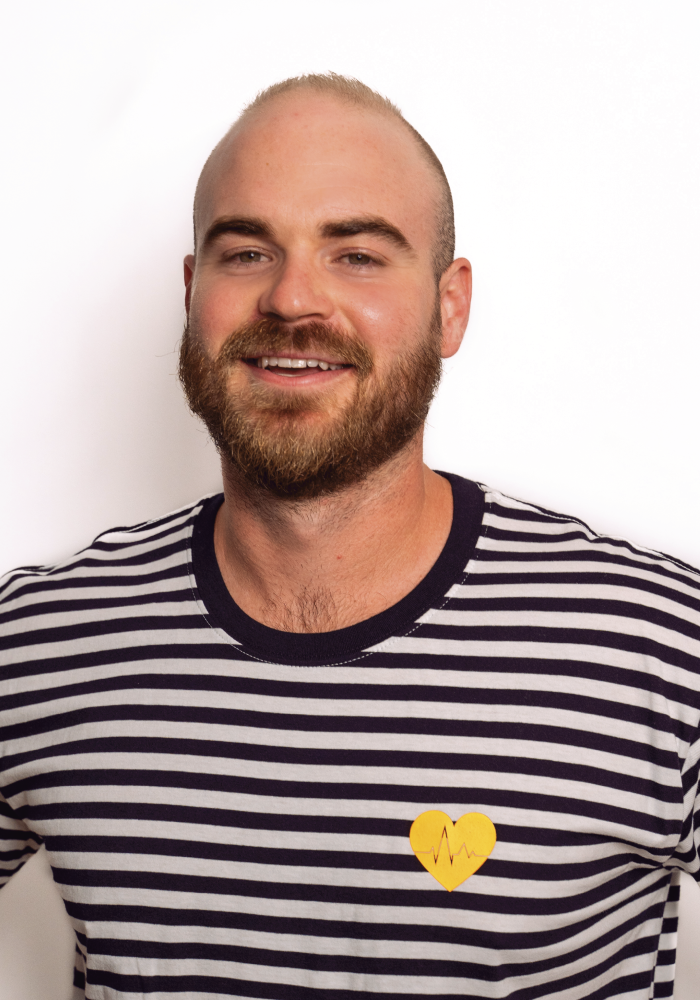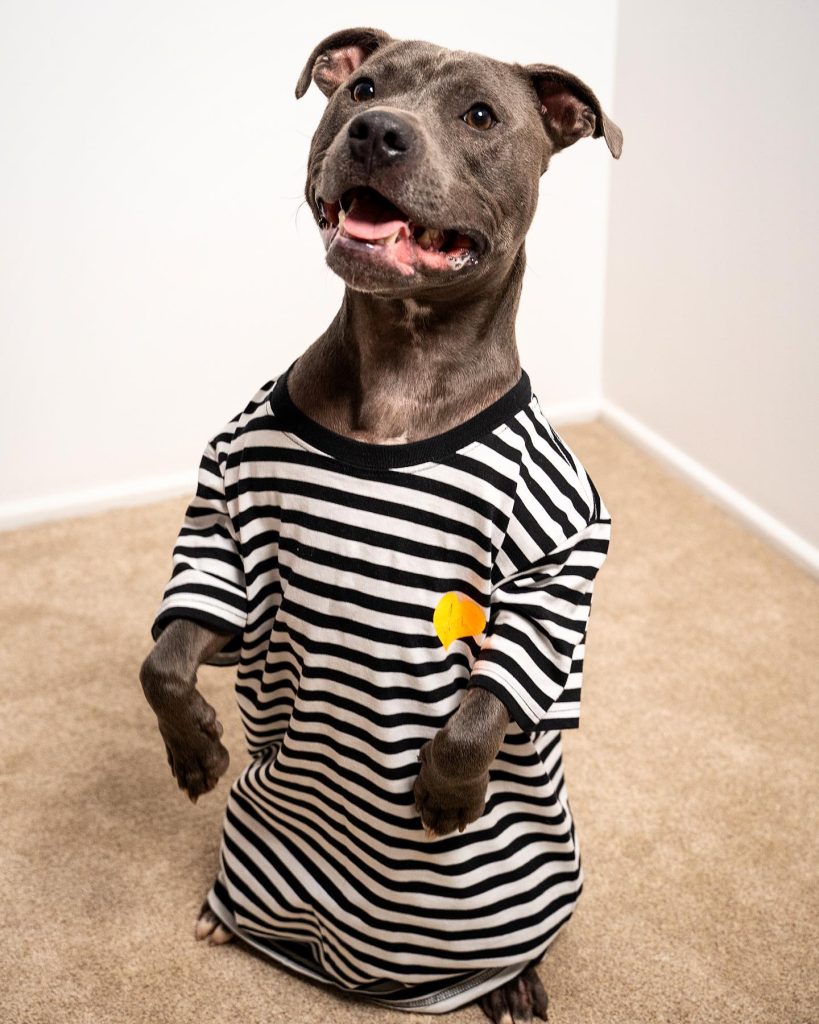In this episode, we segue from autism to discuss how families adapt when supporting someone who is living with a disability.
Using the film What’s Eating Gilbert Grape, Harry and Aj discuss how this effect is portrayed on screen and how it does and doesn’t match up to their experiences.
What’s Eating Gilbert Grape stars Johnny Depp and Leonardo DiCaprio, and is a 1993 coming-of-age film that we recommend watching (or rewatching). There are difficult scenes to watch, some scary, some frustrating, but there are also some moments of compassion and humour.
Transcript
Hello and good afternoon, good morning and welcome to another episode of Unaware by Be Physiology. My name is AJ, and my name is Harry, and you are listening to the official Be Physiology podcast. This is season number one, episode number seven and this season, we have called it Be Reel.
Harry, can you quickly explain to everybody out there in the world what Be Reel is about. Be Reel talks about how particular characters’ events and disabilities are portrayed in movies and films. Then we, as exercise physiologists, try to relate to them in our professional sense and personal life. So if it works or if it doesn’t work, how do we grade these movies in a realistic sense? How does it represent what we see of the disability in our work? When we talk about our work, as Harry said, we’re exercise physiologists.
Our job is to use exercise as a form of medicine. We’re pretty biased and pretty confident that exercise is beneficial for anybody regardless of condition, age, disability. We will try and tie in some of those exercise physiological principles to what we’re seeing. But for the most part, as Harry said, we’re just trying to compare what we know of a disability and what is representative of the film. Perfect man. I think it’s probably a good time to push a spoiler alert for the movie we’re going to do today.
Oh yeah, what is the film that we are doing today, Harry? What’s Eating Gilbert Grape? Yes, that is exactly right. This one, I think you hear people talk about it as if they’ve seen it or if they saw it a while ago and they’re pretty fond of everybody. It seems to be a childhood favourite to a lot of people. I’ve mentioned it to some people, and they get, “oh, I love that movie”. It seems like that movie’s great. I remember watching that when I was a kid, and I loved it. After watching it, I didn’t watch it as a kid. Me either. So I’m coming from the standpoint of just fresh eyes to the whole thing. I wonder if they went back and re-watched it if they had the same opinion. Because we knew the premise of the film and we’ll explain the premise to those who don’t know, we knew somewhat of the premise going into it, and we were already a little bit cautious of what that might look like. People got away with a little bit more back in the 90s. I think this might be 1993.
We’ll explore that a little bit more as we break down what we saw in the film. I’ll go in and explain the plot itself generally. What’s Eating Gilbert Grape? When you think of that movie, if you haven’t seen it, but a little bit of it, you probably immediately think of Leonardo DiCaprio’s character, who has an intellectual disability. I want to say first and foremost that Leo’s character Arnie is not the main character of this film. In fact, Gilbert Grape, who is Arnie’s older brother, played by Johnny Depp, so two good looking actors.
The film is set around this family. I believe the Grapes, that is their last name. Just saying that it is the Grapes, yes, and they live out of Endura in Iowa. In the United States of America, a rural area, good setting, and essentially about that family. As I said, Leonardo Dicaprio’s character Arnie has an intellectual disability. There is also the mother of the film who is extremely obese. Yep, that’s right, and then there is Johnny Depp and two other siblings as well. You get that small-town feel and watching it, so there are a few more characters that make themselves present without actually being a part of the family.
First and foremost, I think this movie was a product of its time. A lot less was known about intellectual disability, and I believe that Arnie, Leonardo’s character, has autism. So even though that’s not official, I think that that’s the consensus. A lot less was known about autism back in 1993 as well. Since then, the whole classification has changed, and we’ve talked about that in our other podcast about a movie called Please Stand By, where we’ve broken down the classifications of autism. You can listen to that one as well if you are interested in learning more. A whole lot less was known back then about autism and disability as a whole because it was such a long time ago. From today’s perspective, I think it might be taken a little bit more differently. Especially to those who have disabilities, and with this one here, and Harry said, we have to an extent covered autism or intellectual disability in a previous podcast. So we’ll try not to repeat ourselves too much, but we’re probably going to take a slightly different approach with this film and look at how the familial effect is broken down. Or the way that the family dynamics around having a child with an intellectual disability. Also, a mother with it’s never really spoken about chronic disease. She’s very overweight. But I’m going to take a wild shot in the dark here and say that she probably has some sort of chronic disease going along with that. It’d be tough if she could get away with it. You’d be, it would be a story of fiction which I think it already is. It still is but fiction squared.
Their oldest brother is Gilbert Grape. Gilbert Grape essentially takes on a lot of the financial burden of the entire family I mean his little sister has a job selling ice cream as well but it really seems to rest upon him he has two sisters and a brother and a mother who just sits at home and doesn’t she’s confined to almost her couch she hasn’t looked at her I’m pretty sure they’ll move the dinner table to her at one stage that’s it well they keep on doing it that’s the ritual they make dinner in the kitchen and then they move the table to the to the couch well that’s actually a good thing to probably bring out yeah first is because like you said that the little sister has a job the older sister is essentially the caretaker for all things home yes and then obviously johnny johnny depp’s character he works as well so it’s interesting with the mother being physically let’s say physically disabled yeah for lack of a better word but not a lack of a better word it’s a pretty true definition of where she’s at being more morbidly obese is classified as disability in a lot of countries confined to her couch and you know Leo’s character having intellectual disability these other three siblings take on a role that is essentially supporting and surviving for the family. If that makes sense, yes, for sure, and we’ll say right off the bat here that anything that we say in today’s podcast is not a stereotype for all families who have somebody with an intellectual disability as a part of that it’s quite like you have to understand especially if you do know someone with a disability it’s so variable anyway and we’ve said that so many times in this podcast before but intellectual disability is very variable someone with autism very variable so and then the dynamics within the families very variable as well we’ll go into that a little bit more I think as we go down as we continue through the podcast I think well how did you think that the family dynamic was portrayed in a sense of being realistic did you think that it was a fair portrayal of what that at least could be I mean when you have two dependent people in a family it’s all hands on deck at that point and I think yeah I think if the mother was confined to the house and hasn’t left the house in seven years and the youngest brother has an intellectual disability which makes him completely dependent you can’t shout shower by himself can’t bathe by himself can’t do a lot of things on his own it just that the dynamic of everyone chaotically working together, I think, is a realistic depiction of what could happen in their scenario.
You know what? I just had a thought, and I feel like I’ve had this thought before and maybe mentioned that on a podcast and forgotten that I’ve had this thought before, but in the film, the father is not present. In fact, the father, I don’t know if this is a spoiler, the father kills himself. I think maybe it’s essentially a year into Arnie’s life. So Arnie being the character with an intellectual disability, yep, it’s not spoken about whether or not that has anything to do with him doing that. I don’t remember any part of the film, but it’s making me realise that many families I see that have a child with an intellectual disability don’t end suicide. That’s certainly not where I’m going, but there is a pretty consistent theme of the parents being separated.
Now I’m not saying that that is the reason why but from the outside, if you’re being a little bit superficial about how you analyse things, you could say that in your experience. Yes, in my experience, it does seem to have a familiar effect. Not saying that intellectual disability equals divorce, but it certainly makes the road a little bumpier in terms of just picture-perfect family affairs 100% you have to. It has to, but it’s all about how you can adapt and come out stronger. 50% of marriages end in divorce anyway. So who knows? We’re going to start telling you, so send in your relationship status, and we’ll dial it up. We’re thinking about making a dating app called Be In Love that’s not bad, and it’s not good.
The brother takes on the financial burden of the family but also the carer or support worker role for his brother, so he’s the main carer for his brother. He and his brother are best mates essentially as well. I found it interesting that in my experience, some people discourage the carer role being taken over by the brother. Can you explain why that might be the case? I’m just trying to say this right away. A lot of parents might just think that they’re responsible for their children. Their children aren’t responsible for their siblings. Do you know what I mean? In terms of carers in Australia and our experiences, everyone has carers and support workers, so they have that option. If you don’t have the opportunity of a support worker, your brother might be the next logical best thing for that person to be the carer. But many families don’t like the idea of the brother being so involved in the dependent caring of their sibling. Some do encourage it for sure, but others discourage it.
I also just realised something that we do at the start of every podcast: we talk about the fact that we’re not living with any disability, and we’re not experts in this area. I feel like this is probably the most critical movie that we’ve covered, where that needs to be explicitly stated. As I said, we’re analysing the family construct within this movie, and we can’t talk about that from personal experience. We can only speak about that from the outside. We do have a unique perspective of looking into the lives of people we work with, but you’re 100% right. This is purely in our experience. If it doesn’t agree with you, we want to know as well we want to know what your experiences are.
Leonardo’s character Arnie, one thing I didn’t love about his depiction as someone with autism is he played what could be considered as the stereotypical kid-like dependent character always just running off and doing crazy stuff. He played that role to a t, and he played the high end of every spectrum that comes with autism. Yeah, he was obsessed with particular things, and he loved attention. Some people with autism might love the spotlight and act exactly as Leonardo’s character did. But to me just felt like that character is the stereotype of someone. Very much so. Before we start, we have to talk about the film to some extent. When I was watching the film, I felt as if this was not a slight on Leonardo’s performance. Still, to me, it felt as if you asked anybody in the world who didn’t have any idea at all of what intellectual disability looked like. You asked them to play this character; this would at least be what they were going for in their sense of this is that stereotypical assessment of what intellectual disability is. As Harry said, it’s so variable, and this side of it, what’s portrayed in Gilbert Grape or an Arnie sorry is very, very high end. What do you mean by high? As in, it’s at the higher end of being mentally impaired? Okay, yes, so your assignment is that you have more impairment? Yes, so I’m not saying high end in terms of high functioning? If anything, I’m on the opposite end of that. Okay, so do you find it difficult coming back to our job and Arnie as a kid and what we do? We work with kids and try to keep them physically active through our sessions? Do you find it difficult keeping the kids that you work with? Do you find it difficult to keep them active during the sessions? well that’s funny Arnie in the film if I can just go to him very quickly it seems pretty active all the time climbing trees non-stop someone that I feel if you made the environment fun and engaging you would get a fantastic session out of yeah when it comes to how I or in my experience working with intellectual disability and whatnot it is for me session to session right you certainly have some clients that will more consistently need a little bit of a push along or you’re working a little bit harder to get an effective session and then you have some clients that more often than not are just pretty breezy but at the end of the day every session is different and you’re constantly feeling yourself out for the first well actually no I take that back, you spend the first five minutes going in as if you always do and then you realise quickly how you need to moderate yourself which path yeah yeah okay because these are kids as well and getting a kid to exercise sometimes kids are just fatigued. We see a lot of our kids after school hours. We don’t get to see our kids between 8 30 and 3 o’clock, and if you’ve been in school all day and then you’ve got an hour of exercise. Everybody has their days, everybody has more days, so I think in Arnie, in the context of Arnie, it almost looked as if you could get him at any time of the day, and he’ll be up and going. That would be a breeze or not a breeze, but it would be a blessing for us because we have those days. No, we want to be effective in our jobs. Yeah, right, and sometimes being effective means pushing some activity out of someone who just isn’t feeling it. Keeping someone on task, if they are hyper-energetic like Annie is, is sometimes difficult. What compromises do you have to take? Well, my compromise is always, well, not necessarily my compromise. Still, my fault is that any movement is good or any exercise is good exercise, right. If I throw the idea out for a particular game or a particular activity. They go, “how about we do it like this?” I will never argue. Yeah, right, as long as they’re still moving around, it’s cool, you know what I mean, and I’ll start almost every session with what are we doing today? I have my ideas. If they sit there with their hands behind their backs, then I’ll come out with some stuff. But more often than not, I’ll come up with some games, and I’ll let them moderate it however they want to, as long as they’re moving. I think we’ve talked about this a little bit before in the other podcast. But it comes down to that particular technique and then trying. This is such a skill in itself, trying to channel them into a particular mode or type of exercise, whether you need them to get stronger, whether you need them to get faster, or get more cardiovascularly fit. How do you then work those pathways and do the other stuff on top of it? 100% It’s a lot. People say, “oh, working with the kids is easy”. It is easy to appoint, but if you’re doing your job properly and you’re thinking about all those movements, then how can I capitalise on the movement that they’re taking to fit our goal? Of course, a great example, and you have to bury it a little bit, so you don’t want to see it you can’t be outward about it you can’t say well this is why we’re going to do this exercise, yeah that’s going to help these muscle abductors are weak, and we need to work on your abductors
That’s a great example. I look at many kids who collapse at the knee every time they come towards the ground in any squatting or sitting movement. Many kids have this, so I think it’s something that many kids will develop out of as they get a little bit older. Still, as EPs, you twitch a little bit as you see it because we’re always looking at biomechanics and how somebody functions. We want to make that as sound as possible. With kids, you’re trying to look for ways to load them up unilaterally or get them doing movements that will help with that right valgus or knee valgus. You’re looking at robots sideways walking away, keeping the legs nice and straight and walking sideways are things that if you just told a kid that their glute medius is a little bit weak, so they collapse at the knee, they don’t know what you’re talking about. They do not give one care right in terms of family dependence, and we’re talking about that a little more in terms of encouragement and discouragement. how do you find the kids you work with and their families have found the interaction between what you’re doing in your sessions with the siblings or the parents or whatever? What I love first and foremost about the parents is they’re always very supportive and understanding of the learning curve. That you take with their kids because you have an innate sense of pressure to go and be effective as an EP just by yourself. From the outset, you understand that it’s not always a realistic goal, but it’s always an expectation that you try to put on yourself. Regardless of intellectual disability or not, there is a much greater or a much more extended get to know you period when it comes to kids. Because you can lose a kid so quickly. It takes a little bit longer to gain their trust, and you’re trying to get them to do things that they’re sometimes not always keen on. So I find at least the parents very supportive, very understanding and very informative with the notion of ‘this is how my kid tends to operate’. Think about this, when you’re doing this, siblings are a little bit the same as well. Sometimes the siblings are really cute when talking about their brother or sister with an intellectual disability. I remember first getting into the role and working with kids, and when siblings who would be seven or eight years old would be like he has autism or he has this and blah blah blah and I was I remember initially being a little bit thrown and thinking oh you guys are young. You have an understanding of what’s going on, yeah, which I thought was cool. It’s awesome. Yeah, it is cool. Hence, when that’s the case, in fact, in any case so far, I think most people are pretty understanding. Siblings and parents know what’s going on. They don’t always know how to handle it. you don’t always know how to handle it yep okay but everyone’s trying so do you find that the siblings get involved yeah I definitely have I definitely have a few clients where their siblings get involved and again it’s one of those things that makes your life as an ep a lot easier because you innately enjoy engaging with your siblings so having them on board certainly helps to to make things a little bit more fun you can be a little bit more creative about what you’re doing I have one client in particular who was funded by the NDIS like a lot of our clients are and through the NDIS you do have plan goals and one of his goals was actually to be more engaging and play more with his siblings. So my sessions have now become very much a part of that goal in that sense of getting the siblings involved. That’s awesome as long as he’s being active we’re good to go. Now just so happens that there’s three other kids that are getting the same thing. Well that’s great because that’s the goal. 100% yeah that is the goal, to be active and to engage more with their siblings and if it means I burn 4000 extra calories in that session then so be it. That happens. Oh it happens and in terms of Gilbert Grape, I mean sorry Arnie Grape, in the movie he can communicate. He can communicate in the sense of verbalising. It doesn’t always make sense, I guess, but a lot of times it does. Do you find that human communication with someone with autism or a kid with autism is quite difficult, or have you found it relatively possible? Well, in my experience, no, not really, but I know that there is an extent to which I just haven’t worked with yet maybe. Going back a little while ago at practicum work with a client who I couldn’t quite always understand verbally, I know that you would have. Can you be the person to explain that then? I don’t know whether we’ve talked about it before in the podcast. Still, in my experience, it’s the carers, and the mother or the carers and the parents have an excellent idea about the little cues, giving you the most potent cues at that person. Whether it be a blink, tap on the chest, whatever it is, nod, shake the head, goes up, eyes go wherever. If you can pick up on those little cues and you just surround yourself with that person for long enough, you’ll start understanding them. It’s just those little techniques, those little cues that get you over the line. I just remembered one of my most long-standing clients, who is completely non-verbal, so I apologise to that client if he’s out there watching or if any of his family members are listening as well. You have to learn to pick up on your particular cues and develop that rapport and relationship exactly with what you said. That’s usually very interesting because communication is so wide. It’s an open field in many ways, and we’re so used to just doing this, talking to each other and picking up our verbal cues. Still, all the tiny little nuances that you get from someone who doesn’t verbalise. It’s crazy how efficient a family member can be with someone with a disability that isn’t that doesn’t vocalise, so yeah, it’s something that makes it easier for us as well, I think when you can cut the verbal crap for sure. You can pick up immediately because when you don’t ever have the fallback of relying on verbal feedback, you are way more conscious of looking at how somebody responds to what they’re doing. Then you’re right on the ball, of knowing when to move on or when something is not that cool, yeah, for sure.
Moving on with the movie, I feel that Arnie’s character everyone in the town knows who Arnie and Gilbert are. They seem to show him more pity than anything else, and I think that’s a reality, and it’s not overly pushed in the movie. That’s all I was getting, it was oh there’s Arnie and Gilbert you can have that for free sure just take it we don’t mind, that type of thing. I thought it just didn’t sit that great with me. Can I ask you something as well then? Something that I always find a little bit awkward depending on where you’re doing a session. Sometimes we’ll operate at a commercial gym with some of our clients who might have an intellectual disability or mobilise using a wheelchair. When you’re walking with somebody like your client, who’s in a wheelchair or has an intellectual disability, you watch people who are so conscious about giving your room. Don’t get me wrong, and it is obvious it’s all a beautiful thing, it’s a very thoughtful thing to see, but it’s also very noticeable. It’s not like that’s lost on the clients either, where it’s not normal for someone to move four meters to give you one meter.
Exactly right. Still, when somebody has an intellectual disability or uses a wheelchair, that is exactly what happens, especially if you’re coming up down the aisle of the gym equipment or whatever. Someone’s using the earphones, and they’re using a reverse fly machine, and then you’re right behind them they turn around. You usually literally spook them. They’re like, oh sorry man and then they’re trying to clean you say, we’re not going to that machine we’re just going past don’t panic you whip people into a panic and then all of a sudden I’m there thinking geez I’m just here with a client who knows exactly why you’re acting that way. It’s not great, but as clinicians you get thank-yous that you don’t deserve. You’re doing what you’re doing, and this is my job, so I’m by no means a wonderful human being and person. I’m just here. We’re not heroes or anything, but you get a lot of credit where your credit is not due. It’s the same thing with someone who mobilises using a wheelchair, and they’re doing something like Bridge to Brisbane or some charity walk or whatever. They’re pushing it in their wheelchair, and people come up to them and say, “oh you’re so brave. Well done, you’re doing so well”. I’m just out here doing it like everyone else; that’s what pity is. Exactly, and people you know see-through, you don’t realise you’re doing it until you’re called up on it. I have a memory for myself. This is well before I was an EP. I was still relatively young at that stage, and I remember watching somebody in a wheelchair try and get up this lip of a footpath and was struggling. I must have been 14 or 15 at the time. I don’t even know if I’d ever really come into close contact with someone who uses the wheelchair. I froze in terms of I just froze and watched what was happening. I was the only person there, and I had no idea whether I would be offensive to ask if he needed help or whether I just stood there being offensive by doing absolutely nothing. I think in both ways, depending on how you go and ask a question. You can be offensive in both regards, but the smart thing would have been to say, “hey do you need any help?” That’s it. That’s it, and they say yes or no, and you go, “cool, see ya all good”. I must say I’m sure everybody listening out there has had some experience with that, or you just don’t know if it’s appropriate you’re overthinking about what is appropriate for you to do. A lot of the time, just act as though that person you know. Even think about it this way, that’s just the able-bodied person using a wheelchair, and they’re struggling to get up a curb. Many people would take the opportunity to say, “I’ll help you up mate”. Get up there. It’s just weird how there’s a stigma around this person who has a disability. They’re different to me; I don’t know if they’ll respond as I would respond. But you just have to do your thing. Then if it backfires, cop it. It’s okay. It’s all good, and that doesn’t mean that people using wheelchairs can be having a bad day or be just jerks. Full-on doesn’t mean because you’re using a wheelchair doesn’t mean you can’t be a jerk. It’s just someone else in the community that you have an option or an opportunity to help out if they need it or something like that.
Back on to the movie. Right at the start, the narrator, who was Gilbert, says, “oh my brother, be lucky to live past ten years old”. Do you remember that? I think so because they mirror the narration at the end of the film. Anyway, it doesn’t matter, yes I think it does. That’s when his writer says he’s putting the cricket in the letterbox and narrating over the top. I thought that was kind of weird. There was a lot of link between having autism and morbidity. More early life morbidity. Three big ones come into it. When I looked it up, epilepsy is often coupled with autism. So epileptic fits leading to death could be several causes for the reason of death. Whether because they do have fits, you never know what can happen. Suicide, unfortunately, is one as well, which is a sad reality. I think they’re still trying to figure out that link or a particular type of autism or whatever. But also there’s a higher risk of cardiovascular disease and cancer, which is that cancer as. That’s from the Autism Awareness Centre Incorporation. They are essentially still researching that field and why it is prevalent in people’s autism. Cardiovascular, you can make a pretty blanket assumption and just that they may be less physically active. Cancer, though, that one’s pretty crazy. Unless it’s just some hyperactive cell division that we don’t. Yeah, well, it’s dysfunctional. I suppose it’s dysfunction in the body physiologically. In that case, cancer is one of those things you got to watch out for. I had no idea. I wonder if the film is set in 1993, as well as anything else. I wonder if there’s been any change in life expectancy for somebody with an intellectual impairment. If the life expectancies are going up. It has to be going up for someone with an intellectual disability. Because of modern medicine, it’s just we’re moving right along. tomorrow’s the future, you know what scene stood out to me as well, and look, I’m not saying that this isn’t realistic in my experience. It’s not, but there’s a scene in the film where Arnie is probably being a little bit hyperactive, and Gilbert is that his wits and responds quite physically instead and hits Arnie.
I think he hits him once or twice, maybe thrice. Yeah, I would say it might be an extra one in there and in the film. This just completely calms Arnie. He mellows out. It’s the same shock that you see when somebody gets hit that they weren’t expecting with whoa. In my experience if you have an intellectual disability or if somebody has an intellectual disability yeah sometimes calming him down there is nothing I mean you could hit him if you knocked him unconscious like that might do it but you have a lot of experience with hitting children and not finishing the job my clients I thought that was one thing that I thought was a little bit unrealistic I mean I’m not again I can’t say for sure that it isn’t but I feel that if anything that would only make the situation worse if you were to physically insult someone who was having somewhat of like a hyperactive episode a tantrum of or epileptic fit stuff like that yeah I mean you try being calm it doesn’t get them any karma it’s so I don’t I don’t know I don’t know what you thought of that I thought I thought it was definitely weird where he just simmered down and then all of a sudden quaint johnny depp just comes down yeah yeah confusing to say the least man yeah definitely yeah so and that actually touches on something else I wanted to bring up is carer abuse as well oh yeah because I mean you look at the royal commission that’s recently gone into aged care and the issues that arise from that definitely some stories or not stories but factual events of people in supportive roles for elderly people abusing them physically and emotionally it’s something to really be mindful of as all I know and again carers are awesome, the vast majority of the carers i’ve met are wonderful people. There are bad eggs just like this bad exercise physiologist, just like there are bad doctors not in this room, maybe one. Carer abuse is a thing that people have to be mindful of it I knew someone that their carer well the client was a 70 something-year-old female her carer was a 40-year-old female and over time this carer. I knew the carer for a while and seemed like a lovely person, and I knew the client for longer. Still, over a year or something, the carer was taking money from the client consistently. Physical cash or claiming for things that they should because I know the whole false claiming thing can be a bit of an issue, so I believe this is more because she used her card to buy groceries and get cash out. It’s been a bad act for years, for a year at least, and it was just heartbreaking. When that happened because you think, geez, it’s surely that 20 bucks a week or whatever you pocketed. No, that’s the other side of the coin where we’ve said multiple times on this podcast where you just need to treat people like human beings. You need not treat them in accordance with their condition, and this is the other side where if you’re conniving enough, it can be very easy to take advantage of somebody with an intellectual disability with any disability, and that’s probably the hard part where you make that one statement about just treating people fairly and then the other end which is fair yeah so you’re looking at the shadows you’re looking at the dark side of what reality. We’re pushing for the lighter end of reality. Still, there’s always the bad eggs, as you said, so yeah, but yeah, little things like that in terms of caring, and there’s the physical abuse that goes on as well, but I thought about that when I saw Gilbert snapping and hit Arnie as well.
I think if I’m completely open and honest, I will admit that there are. Never to the point of ever hitting, yelling, being physically violent, or showing any adverse emotion. But I would be lying if I said that there are never moments in my sessions where you’re not frustrated internally. You wouldn’t be who you are if you didn’t get frustrated. You would be a genuine angel if you can get through any session, and that hasn’t even got to do with people with disabilities or intellectual disabilities. There are clients as some people are just jerks. Some people are just dismissive of what you’re doing, and anybody passionate about what they’re doing can at times be at least internally affected by that. I think this is where I would try and tie things up at the end as EPs to say that you can have those frustrations regardless of what client you’re working with. It’s about dropping your ego and understanding that it’s not your job to be in control of everything. In the context of your work (and I think in the movie), this plays out at this moment where Gilbert’s trying to get a grip on what’s happening around him. In that one scene where Arnie’s just been a little bit resistant. If your expectation is for any client that they will 100% of the time eventually just stay in line because you get a little bit upset, you’re out of your mind.
Just to change the topic a little bit, I also realised that thinking about it a lot of the time because we have done a couple of movies with people with autism. A lot of the time, when you think of someone with autism, who do you think of just off the top of your head? I think of my clients now. You think of kids with autism, right yeah, so it’s ADD or ADHD. You think of a kid with that condition, something to note is that kids with autism grow up to be adults with autism. You never really think that if you do, obviously they might be a lot more adjusted to the world, and maybe it’s less detectable to people or something. But it’s adults with autism, which I just thought, I don’t know if people agree with me in that sense. But you just automatically think that kids have autism.
That’s a good point, actually, and you know what’s funny about that as well? Not to open up another can of worms so late in the podcast. But one thing that you contend with internally just in terms of how you’re trying to understand your client is whether something is on account of autism or whether it’s just a seven-year-old kid. Because seven-year-olds can be pretty hard to control, and sometimes autism may have nothing to do with that, or maybe it does. My poor mother, you know, geez. I have some flashbacks, and I think I don’t know how she did it. You’re 100% right. In What’s Eating Gilbert Grape, Arnie’s character, who has autism, is kind of put on display for able-bodied people. It is an easily digestible image for them and makes you feel sorry for the family that he’s even alive. In the early narration that you’re talking about at the start of the film.
There is a line in that sometimes you’re glad he’s alive, and sometimes you wish he was dead or something along those lines. It automatically made him dispensable in a way. So in terms of wrapping this movie up, there were a lot of things I disagreed with, but a lot of things I have to sit back and go well, it’s possible because it is possible. Someone with autism can act exactly as Gilbert does. Still, it raises the question of how we take responsibility and make sure that the marginalised people in our community that may have disabilities can live a happy, healthy long life. Then also, how can we support their supporters in a way similar to how we can support them? Because the whole movie is based around Gilbert, how can he have more support to live a long and happy life because, in the movie, it feels as though he’s stuck, so he has a sibling with a disability.
He’s a mother who essentially has a disability and a mother who has this. They’re essentially stuck or trapped even in Endura, the town and can’t leave because he can’t leave his brother. He can’t bring his brother with him. He just has to stay there, and that’s that. That’s his life, and the movie ends like that as well, I think, in the end. This is probably the ultimate spoiler but turn this one off if you are planning to watch this for the next 15 seconds starting now! When the mother dies, there’s a line at the end where he says, well, we can go anywhere that we want now. So what does wrap the film up in saying that the intellectual disability was less so the burden, albeit still a burden in having the mother. The mothers are also there to be cared for as well. Once she passed away, the chains were let loose, and they could lead. But it’s the same story in the sense that is it fair to be confined on account of somebody else’s disability. It’s not an argument that I’m going to answer for you. come on back in, guys, if you have some mute. In my experience, I know a lot of families that go on holidays and take the child or whoever the family member is with them on holidays. It takes a little bit more extra planning and preparation for sure, as we’ve talked about in other podcasts as well in terms of the hotel or the type of transport or the restaurants you eat at or whatever triggers. But it’s possible, and you know, I thought that it was kind of important to note that these people shouldn’t be seen as stuck because someone that they know has a disability. That’s all cool, and I think that was well said, man. I think that might be where we leave it. I don’t know if there’s anything else that you wanted to say. No, nothing at all, just thank you very much for joining us for another podcast of Be Reel. It’s been a real treat for us. We helped talk our experiences out, and we’re looking forward to any kind of input you have. Please shout out, give us some feedback, subscribe, like, what’s the other one, all that stuff, thanks for joining us, my name is AJ, my name’s Harry we are Be Physiology. Take care of yourselves guys.














